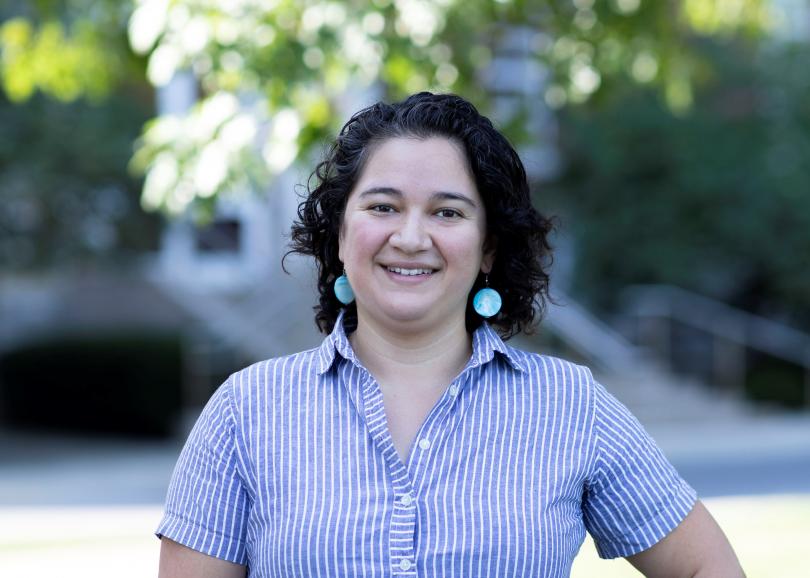 By A Fish
By A Fish
LEXINGTON; Ky. — When one hears about archaeology, one thinks of Indiana Jones, Egypt, anything — but rarely does one hear about archaeological sites in the rolling hills of Kentucky. Elena Sesma has started two research projects at the University of Kentucky so that anthropology students can get hands-on experience while in undergraduate and graduate programs.
The first project is a reanalysis of a site in Nicholas County, Kentucky, that was excavated in the mid ’90s by the Kentucky Archaeology Survey.
“The site today is on the property of the North Central 4H camp” said Sesma, an assistant professor at the University of Kentucky. “It was a home site for an African American family in the last 20 years of the 19th century, and what I have been doing in this research is reanalyzing the artifact assemblage to get a better understanding of the family's life in this place.”
Sesma explained that she is most interested in how artifacts help us better understand race, class and gender in a particular time, such as the post-bellum period in eastern and central Kentucky. For example, in this site’s artifact assemblage she found thimbles, pins and buttons. These materials helped her to conclude that one of the women living in the household previously had been a seamstress or laundress.
“I was interested in uncovering the sort of hidden labor of Black women in this house and using the artifacts to revisit archival interpretation from the paper records,” she said. “I also was able to track down some descendants of the family with help from students assisting with this project. When I contacted them, they were very excited to learn about this site. They hadn't known that archaeology had happened there, but they had obviously heard family stories of their grandparents and great-grandparents who lived at the site.”
Family members who have been contacted by Sesma have remained in communication with her, and she plans to meet them here in Kentucky at some point in 2023, and to review the artifacts together to gain new perspective on their ancestors’ lives through oral history.
Her other recent endeavor is the UK Campus Archaeology Project, which started over the summer behind 218 E. Maxwell St. Her team was looking for foundations from wood-framed buildings built at the site in the late 19th century and which stood until the mid-20th century. Looking for clues as to what the structures were and what they were used for, they were hoping that this would help supply insight into how Lexington’s landscape has transformed as the boundaries of campus continued to expand into residential areas.
“I see this project primarily as an educational opportunity for students to learn archaeological research methods and to learn them really locally,” she said. "They (the students) get to see themselves in the history of this place and in the history of the University of Kentucky, but they also get to help uncover the stories of people who came before them,” she said. “All of these projects kind of fit into my overall research on historical archaeology, on community-based research, and interest in documenting the African diaspora in the United States, looking at sites not just of slavery but of emancipation and post emancipation, life here in Kentucky.”
The UK Campus Archaeology Project is expected to make a comeback in the fall of 2023 so even more students can take part.
Before coming to UK, Sesma’s work was centered around a 19th century plantation site in the Bahamas. “I did not think that I would be able to go back to the Bahamas, to an international field site [because of the pandemic], so I started looking for new research projects locally and over time started to develop a couple,” she said. That project began as Sesma’s dissertation, which documented the historic plantation landscape and its remaining standing structures, as well as local and descendant community interpretations of this place today through oral history and ethnographic interviews. However, due to the COVID-19 pandemic she has not been able to return to this project for some time. She hopes to be able to return soon, but in the meantime, she has been kept busy with the projects here in Kentucky"
“Kentucky has such a wealth of history and there has been a lot of archaeology throughout the Commonwealth already," she said. “I'm excited to contribute to the archaeology of Kentucky in new ways, and to build new courses and programming in historical archaeology so that students can take advantage of these training opportunities right here on campus at UK."
